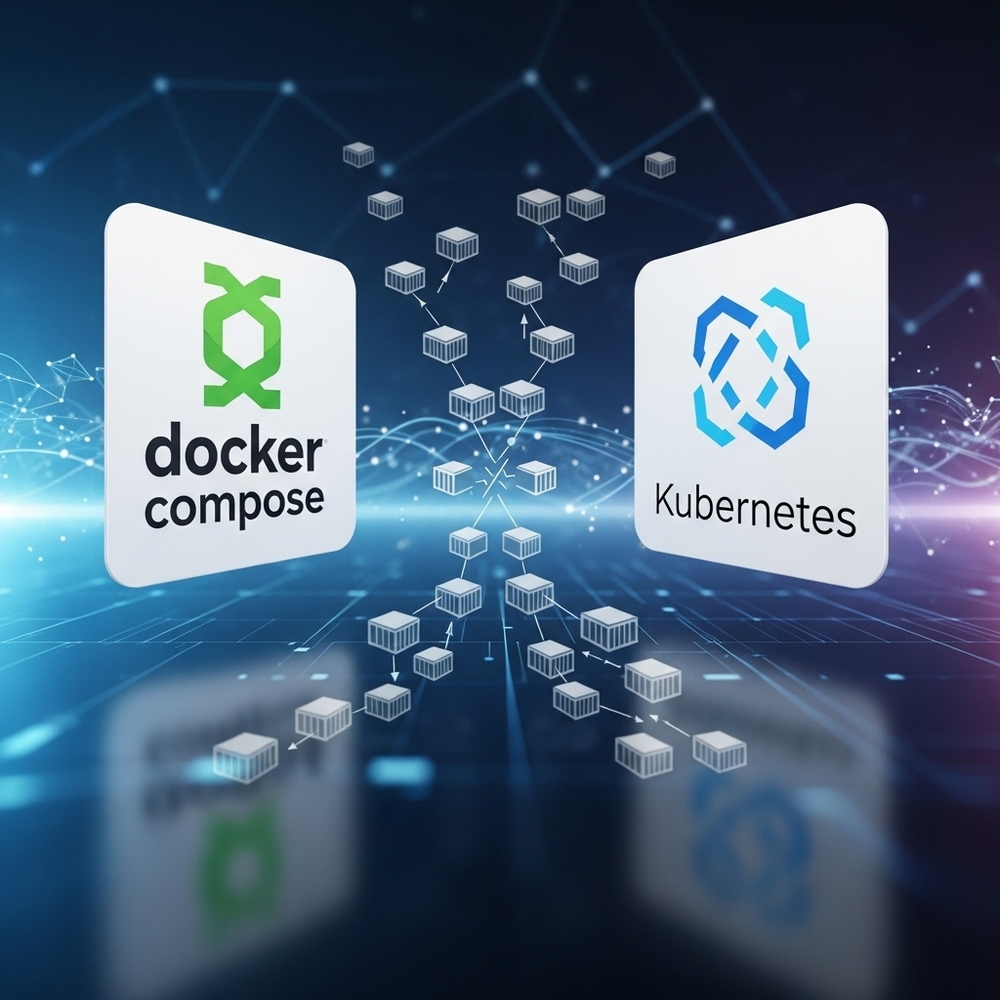Docker Compose Vs Kubernetes Which One Should You Use

When working with containers, two popular tools often come up: Docker Compose and Kubernetes. But which one is right for your project? Understanding what each tool does and their advantages can help you choose the best solution for container orchestration and management.
What Is Docker Compose
Docker Compose is a tool for defining and managing multi-container Docker applications. It uses a simple YAML file to configure and run containers on a single host with a few commands.
How Docker Compose Works
- You define your application services, networks, and volumes in a
docker-compose.ymlfile. - Running
docker-compose uplaunches all containers according to your configuration. - It simplifies running multiple containers that make up an application without complex commands.
Advantages of Docker Compose
- Easy to learn and use: Simple syntax and straightforward commands.
- Great for development environments: Ideal for testing locally on one machine.
- Fast setup: Spin up containers quickly without extra complexity.
- Lightweight: Does not require extensive resources or cluster setup.
What Is Kubernetes
Kubernetes is an open-source container orchestration platform designed to run and manage containerized applications at scale across multiple hosts.
How Kubernetes Works
- Kubernetes manages clusters of machines and schedules containers based on resource needs and availability.
- It offers features like automated deployment, scaling, load balancing, and self-healing.
- Managed through YAML manifests or other configuration tools.
Advantages of Kubernetes
- Scalability: Easily manage thousands of containers across multiple nodes.
- High availability: Automatically restarts failed containers and distributes traffic.
- Flexibility: Supports various container runtimes and cloud providers.
- Extensible: Offers a rich ecosystem of plugins and tools.
Docker Compose Vs Kubernetes Comparison
| Feature | Docker Compose | Kubernetes |
|---|---|---|
| Use case | Local development and testing | Production-grade container orchestration |
| Complexity | Simple | Complex |
| Scale | Single host | Multi-node cluster |
| Installation | Lightweight and quick | Requires cluster setup |
| Features | Basic orchestration | Advanced features like auto-scaling, rolling updates |
| Learning curve | Low | Steep |
Which One Should You Choose
The choice between Docker Compose and Kubernetes depends on your project needs:
-
Pick Docker Compose if:
- You want a simple way to run containers locally.
- Your app doesn’t require complex scaling or high availability.
- You’re focusing on development and testing.
-
Pick Kubernetes if:
- You need to deploy containerized applications in production.
- You want to scale applications across multiple servers.
- You need features like self-healing, rolling updates, and load balancing.
Conclusion
Both Docker Compose and Kubernetes play important roles in container orchestration. Docker Compose is great for quick setups and local development. Kubernetes shines when managing complex, scalable applications across clusters.
Understanding their strengths helps you pick the right tool for your container workflows. Try Docker Compose for simplicity, and consider Kubernetes for scaling and production management.
What’s your current container orchestration choice and why? Share your experience and questions below.